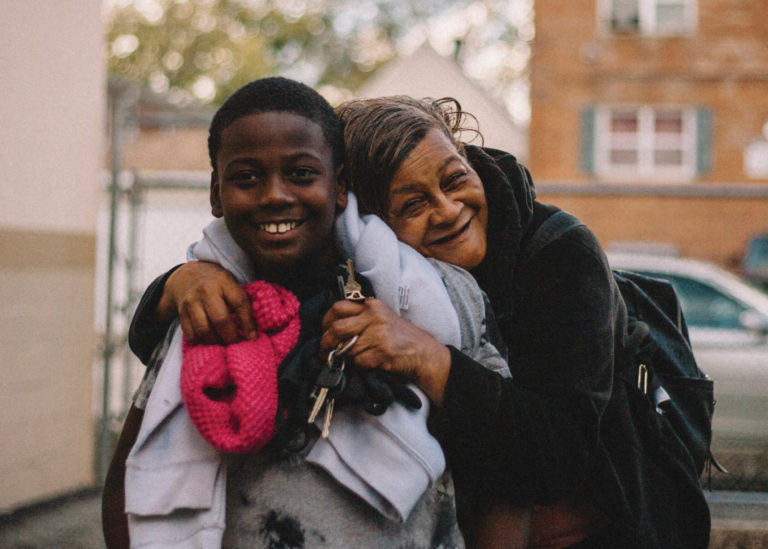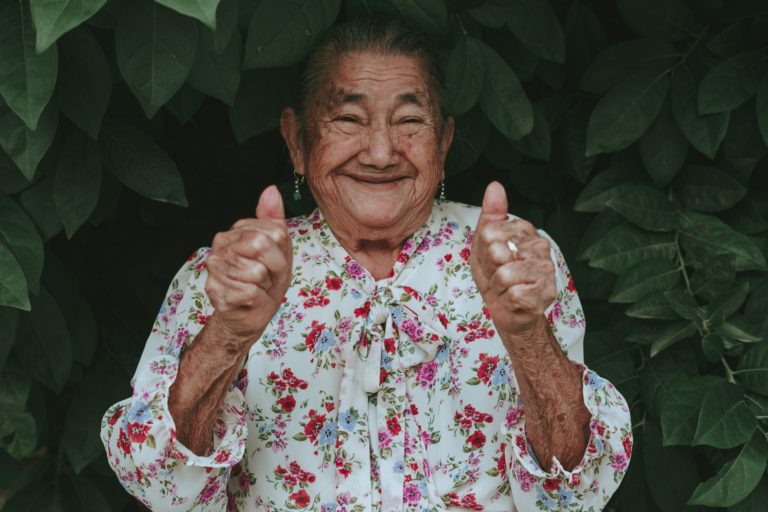
Kathryn O’Shea-Evans is a freelance writer for The New York Times, Wall Street Journal, and many other outlets.
Dispensing love and life lessons, grandparents step in to raise their grandchildren
Above photo by Jim Vondruska: Diana Martin-Logan with her Great-grandson, Jaylin McCray.
What do President Barack Obama, Maya Angelou, Willie Nelson, and Carol Burnett have in common? They’re all enormously successful … and they were all brought up, at least for a few years, by a grandparent. It’s a common situation: Some 2.6 million grandparents in America are raising their grandkids full time, according to the U.S. Census Bureau. In Illinois alone, grandparents are raising around 220,000 children under 18.
The reasons these older adults take on the job are complex and varied. The children’s birth parents may be facing deployment, incarceration, substance use, or mental health struggles. But the grandparents step up, even while dealing with their own life challenges.
While many grandparents look forward to filling up their cookie jar for occasional pinch-hitting babysitting afternoons, this is grandparenting on a different level.
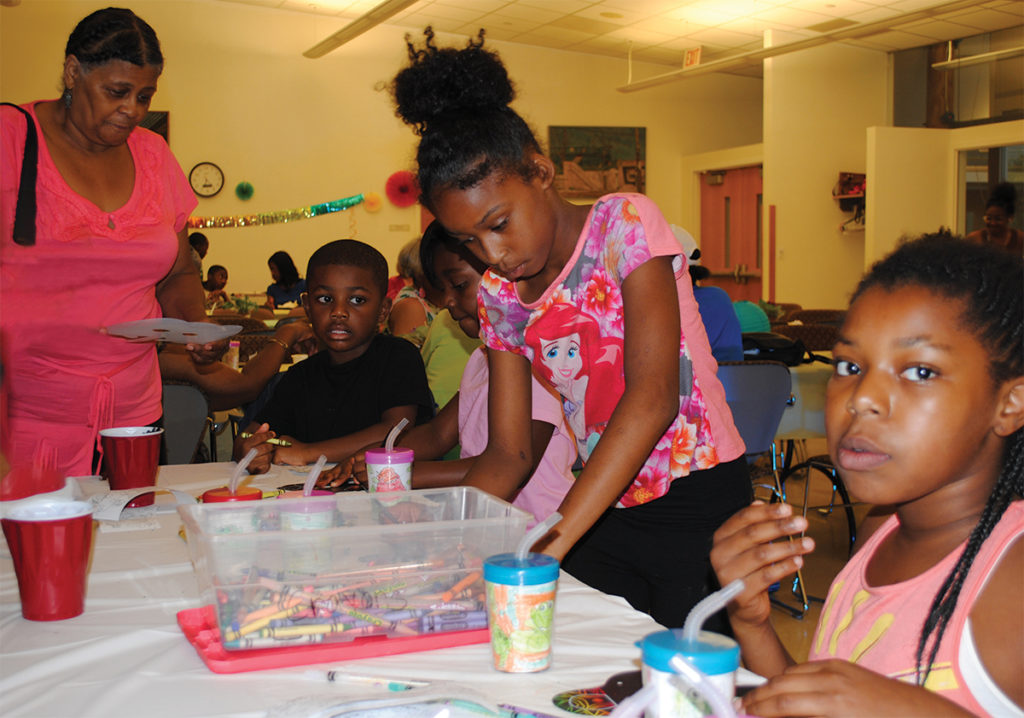
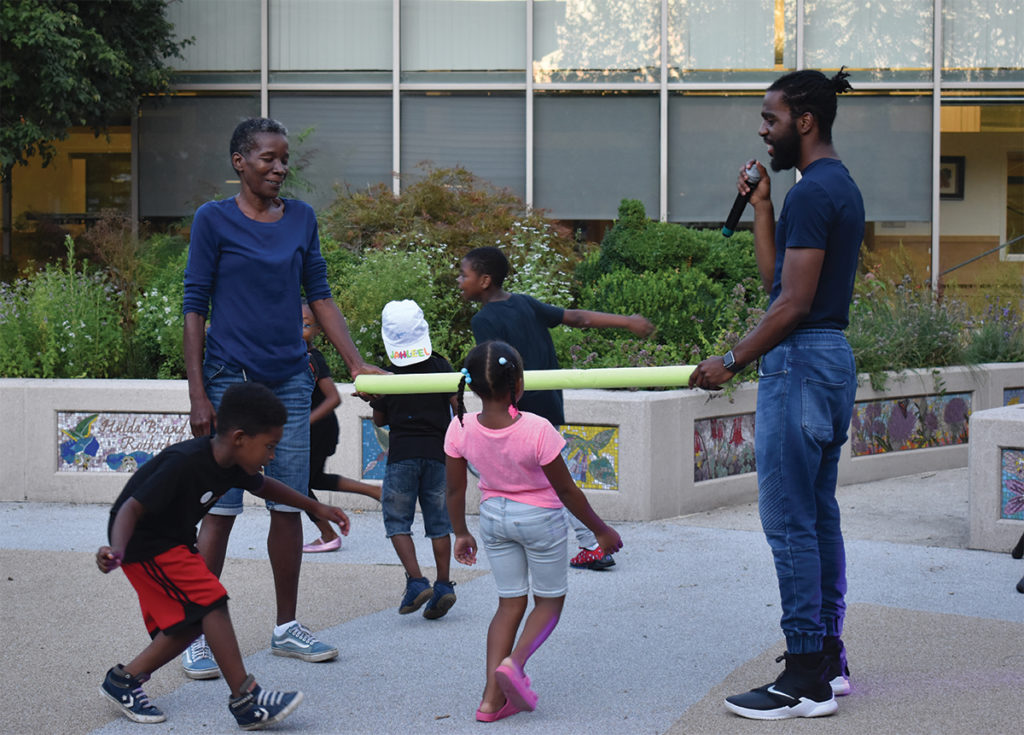
“It’s tough,” says social worker Ruth Malutan, who has been a co-facilitator of North Shore Senior Center’s Grandparents Raising Grandchildren program. The program is one of several such programs in the state, run by caregiver resource centers and funded by local area agencies on aging. “Raising one or five or six grandchildren on top of having to deal with their own health conditions, they have so much on their plate,” she says.
A grand responsibility
Evanston resident Diana Martin-Logan, 66, knows those struggles firsthand, as she raised four of her granddaughters. But Martin-Login didn’t stop there, as she then began caring for the next generation, first looking after a great-granddaughter for 10 years and now raising a great-grandson, all while working as a cook.
Part of the grandparenting gig is stepping into grief and trauma, providing a safer alternative to the foster care system, where the children might end up if a parent couldn’t care for them.
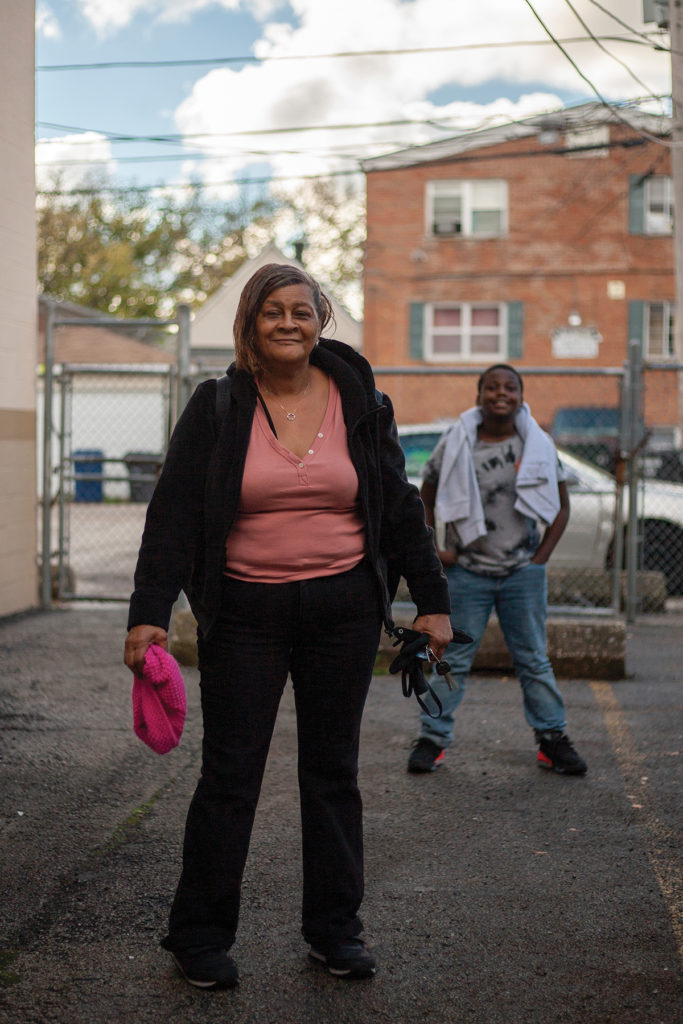
“There are some rewards with it, but also some hard times — just trying to convince [the kids], ‘Your parents were in a bad situation,’” Martin-Logan says. “They were very heartbroken about their parents who couldn’t take care of them, but I think I did a good job.”
Nobody asks for this responsibility. But taking on the role of guardian is something many of these grandparents feel called to do, and they have no regrets.
“I’ve read too many stories about kids being abused, and I just could not rest if one of my [grandkids] was in foster care and I didn’t know where they were or who they were with,” says Cora Galbreath, an employment specialist who is currently raising four of her grandchildren herself, after bringing up her own eight kids.
That Galbreath and other grandparents have tackled this parenting challenge head-on is nothing less than inspirational for Malutan, who has been working with the group for three years. The circumstances that lead to these seniors taking over care — such as their children’s death, incarceration, or mental health issues — are tough, yet they persevere.
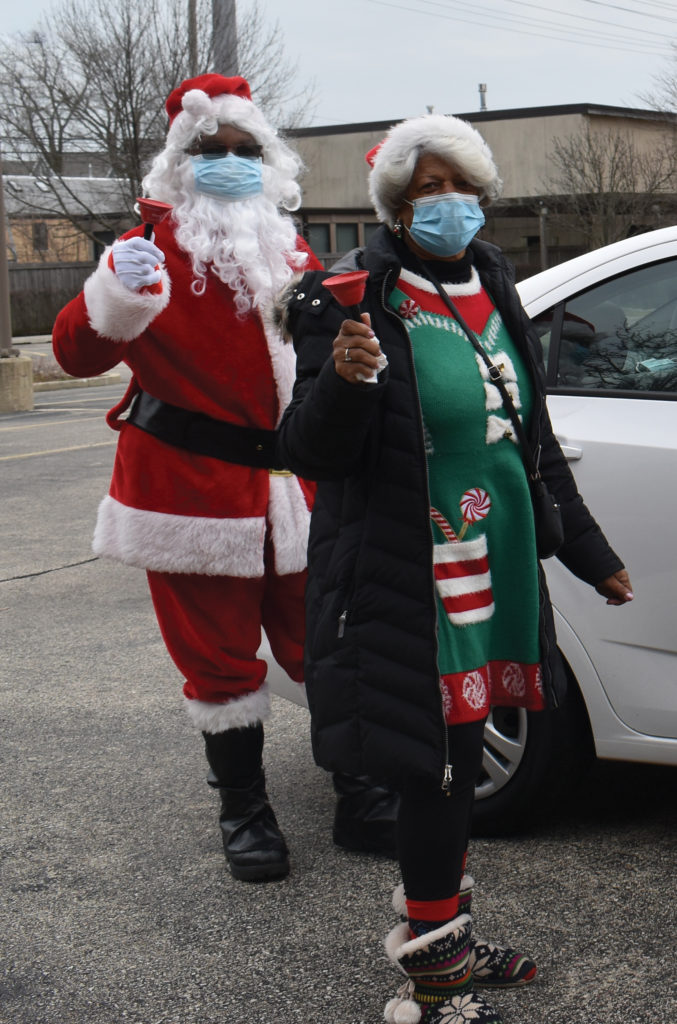
“Seeing the resilience and all that they go through, you sit there and say, ‘Wow, I don’t know what I would do,’” Malutan says. “They’ve experienced so many losses, and they have no choice. They have to pick up and keep going.”
Parenting the second time around
While there are plenty of hugs, parenting grandchildren often comes with a variety of financial, physical, and emotional challenges.
“The younger the child, such as infants, and the more children — four siblings instead of one — the more significant the adjustment,” says Lydia Templin-Collins who, until recently, was grants manager at AgeLinc, a Springfield-based nonprofit agency that provides services to older adults.
She points to the forms of stress. “Fatigue, environmental changes, safety concerns, and the physical and emotional demands of child-rearing are usually accentuated by crisis, grief, and learning to negotiate stressors when energy levels and personal physical and mental health needs have significantly changed with age.”
But grandparents continue to accept the challenge, especially when it means keeping their grandkids out of the foster care system.
“Children are more likely to thrive if family remain their primary care provider,” Templin-Collins says. And the role comes with myriad rewards for the grandparents themselves. “A multigenerational home always comes with benefits, both for the minor and the older adult,” she notes.
There’s a lot to learn from the young folk. “While a generational gap can be challenging — especially for teenagers and seniors sharing new rules — I know a lot of my grandparents have thoroughly enjoyed the in-home tech assistance, extra arms and legs for physical work, insights and information on the challenges and interests of young people, and watching a child grow, heal, and thrive,” Templin-Collins says.
While family is different the second time around, it is still family. “My grandparents raising grandchildren would say they have not become parents. They have remained grandparents who are now raising children,” Templin-Collins says. “They would tell you, ‘We are a family.’ And they are.”
Sharing experiences
While it’s hard to raise children under the best of circumstances, it’s even harder to do it alone. Older adults appreciate the support they get from others in a similar situation.
Both Martin-Logan and Galbreath are members of North Shore Senior Center’s Grandparents Raising Grandchildren program, which currently serves 24 grandparents and 70 grandchildren in the Chicago area, providing community support and occasional monetary assistance through state and federal financial funds.
Visiting speakers join the group’s meetings to discuss important topics such as setting social media boundaries for grandkids. But it’s the social aspect that has many folks returning again and again.
“A lot of us have similar stories. It’s great to get together and talk about different experiences,” Galbreath says.
She credits the group with providing her with emotional and financial support. “I’m telling you, I just don’t know what I would have done without it,” she says. “So many times, [the government] denied me for food stamps. I had a hard time getting help with the kids mainly because of my income, because I’m on Social Security and I work. But Grandparents Raising Grandchildren just stepped in and delivered food; they paid the light bill, gas bill. I’m so, so glad to be a part of it.”
The community factor is key for helping these grandparents and grandkids feel like they’re in the same boat as others — enjoyingthe highs (uproarious giggles) and lows (spur-of-the-moment tantrums).
“All the grandparents I met, we heard their stories, we talk and socialize,” Galbreath says. The kids look forward to the meetings, too. “They have a separate room for the kids with babysitters, and they just adore it.”
When the Covid-19 pandemic stymied in-person events for Grandparents Raising Grandchildren, the group held virtual Zoom meetings and even created drive-through fun, such as an event to give families back-to-school gift cards.
Being apart during the Covid-19 pandemic hasn’t severed this community’s very real bonds. “We finally
had one meeting, at the Levy Senior Center building [in Evanston]. We couldn’t stay long because of Covid,” Martin-Logan says. After the event, members gathered outside. “We didn’t want to leave. We stayed out there almost an hour and a half in the parking lot. That’s how much we missed each other!”
Youth success
And while not biological grandparents, some seniors step into the role of parenting at an older age, through a variety of circumstances.
Dominique Wilson, a now 29-year- old global development professional, was adopted by a 60-something woman he called Granny Hattie when he was 3. He grew up with her on Chicago’s West Side.
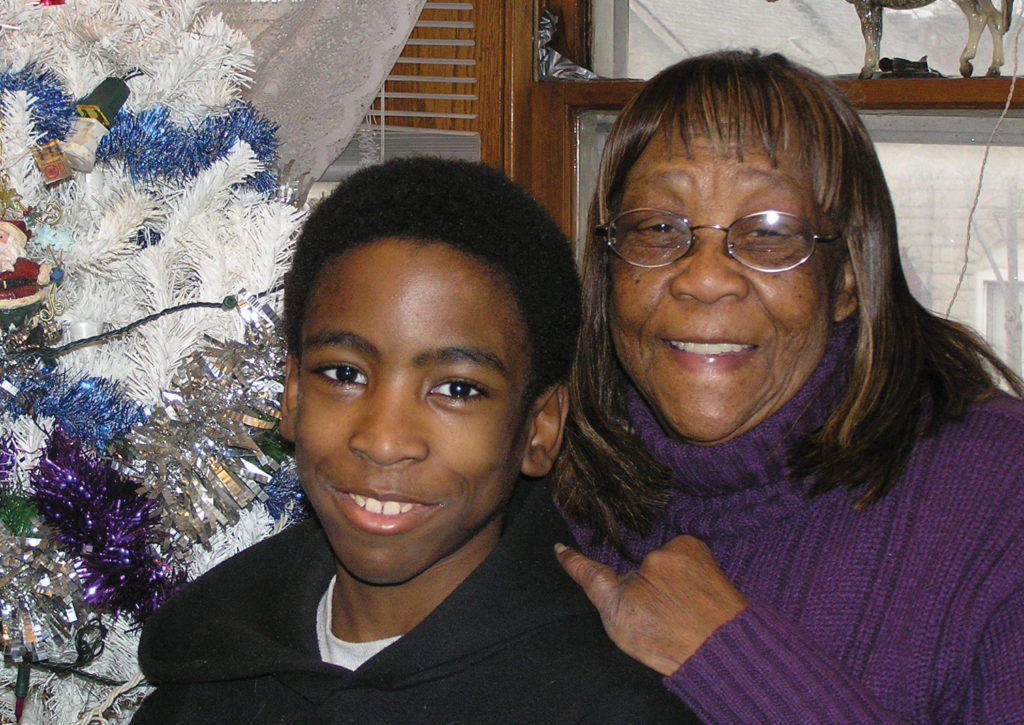
“I was very blessed to have had her in my life,” says Wilson, who lives in Chicago. “My biological family, they haven’t lived the best life or made the best choices. My father has been in jail more of his life than he’s been free. My mother passed away when I was in fifth grade. She was in and out of jail, and the only photo I have of me and her is from when I visited her in jail.”
Granny Hattie — who grew up in Mississippi with 18 siblings and lost a son of her own — showered Wilson with love and gave him the stable home life he, like all children, so needed.
“Granny Hattie was a God-fearing woman. We would go to church faithfully every Sunday from the start of the day till the sun went down,” he recalls. “She taught me a lot about principles and values. Even though she didn’t have the most, she was very selfless. I remember days we would go give food to church family members who didn’t have as much as we had.”
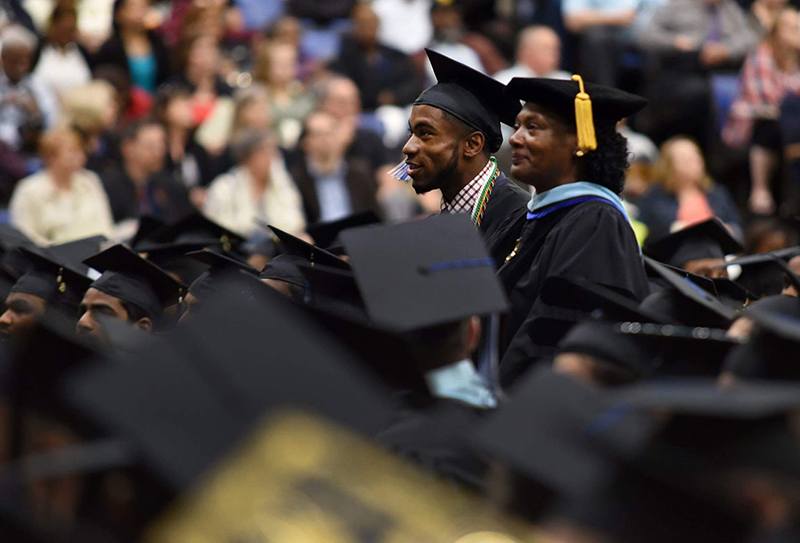
Older adults, who have a lifetime’s worth of perspective, often set clear expectations with their grandchildren and guide them toward good choices. That was the case with Granny Hattie, Wilson says.
“She was very open and honest with me. If outside my home, people were selling drugs, she told me those weren’t the best choices. She made sure I was aware of it and would make better decisions,” says Wilson, who has now co-founded a tech company — an online job and nonprofit network, RiseKit — and purchased a real estate investment property on Chicago’s South Side, all before age 30.
For Galbreath, success means sending three of her grandkids off to college. For Martin-Logan, it means knowing her grandkids are well-prepared for life.
When grandparents choose to bring up their grandchildren, the challenges are big, but so are the rewards. From doling out sage advice to dispensing cookies and hugs, grandparents prove that they are stellar parents, no matter the age. And that’s grand indeed.

